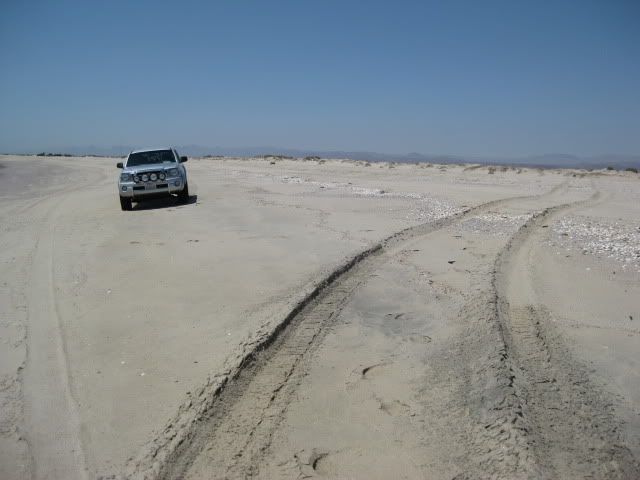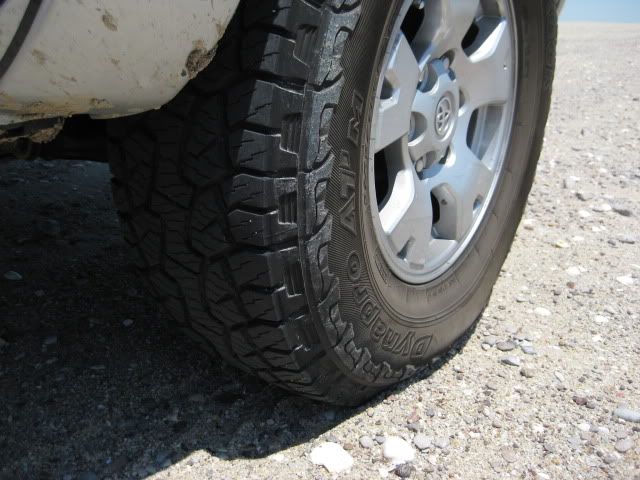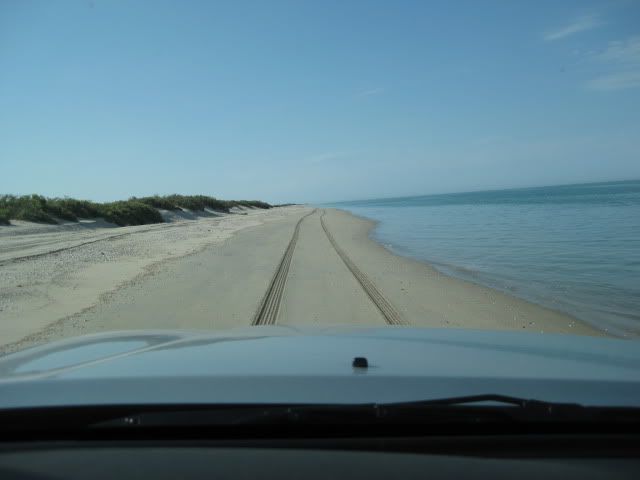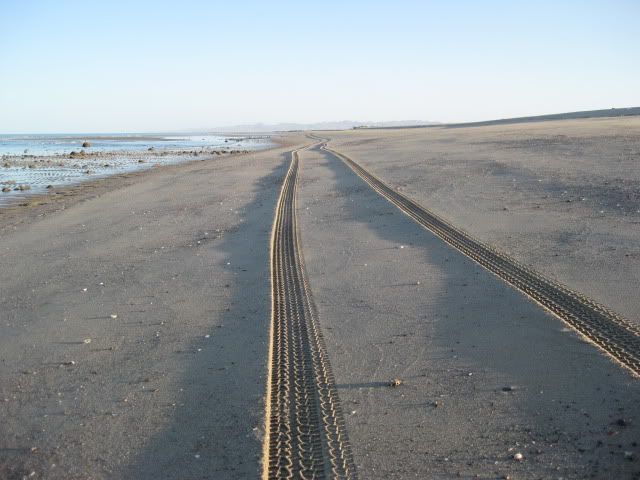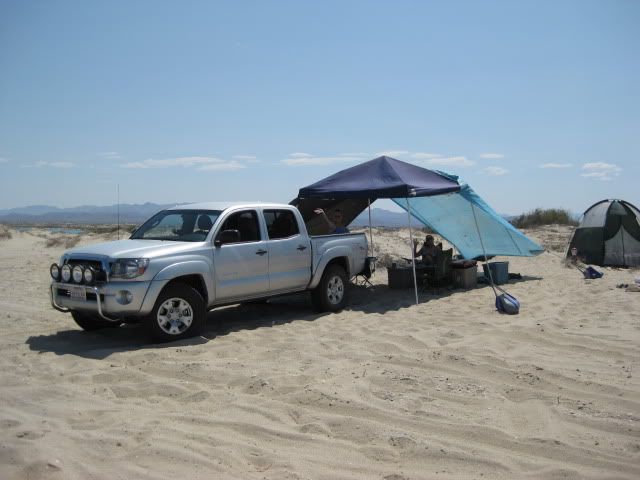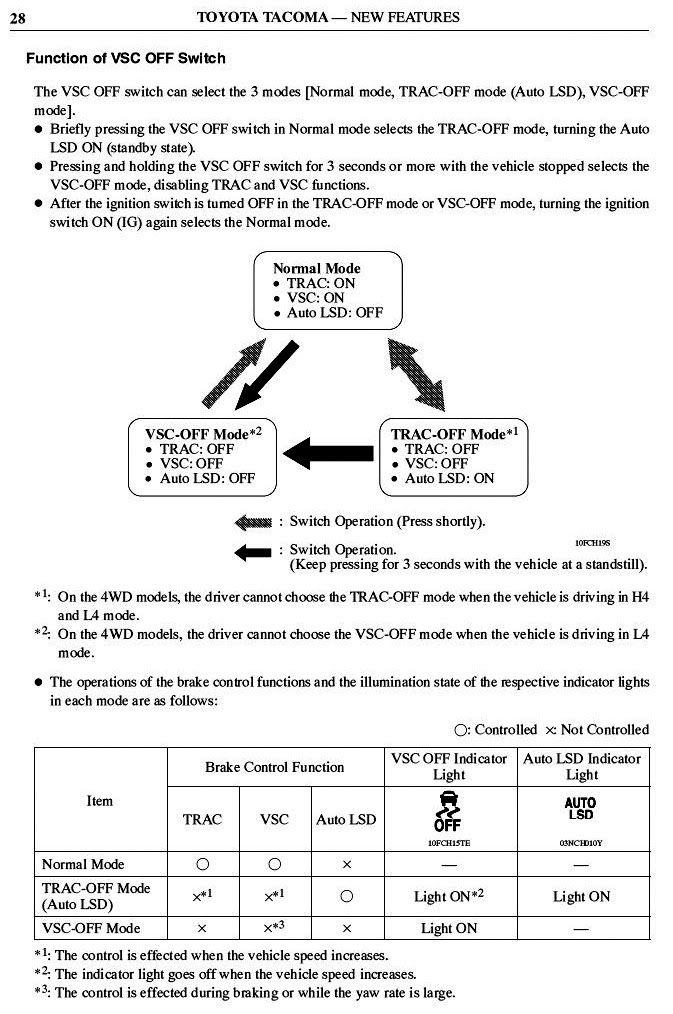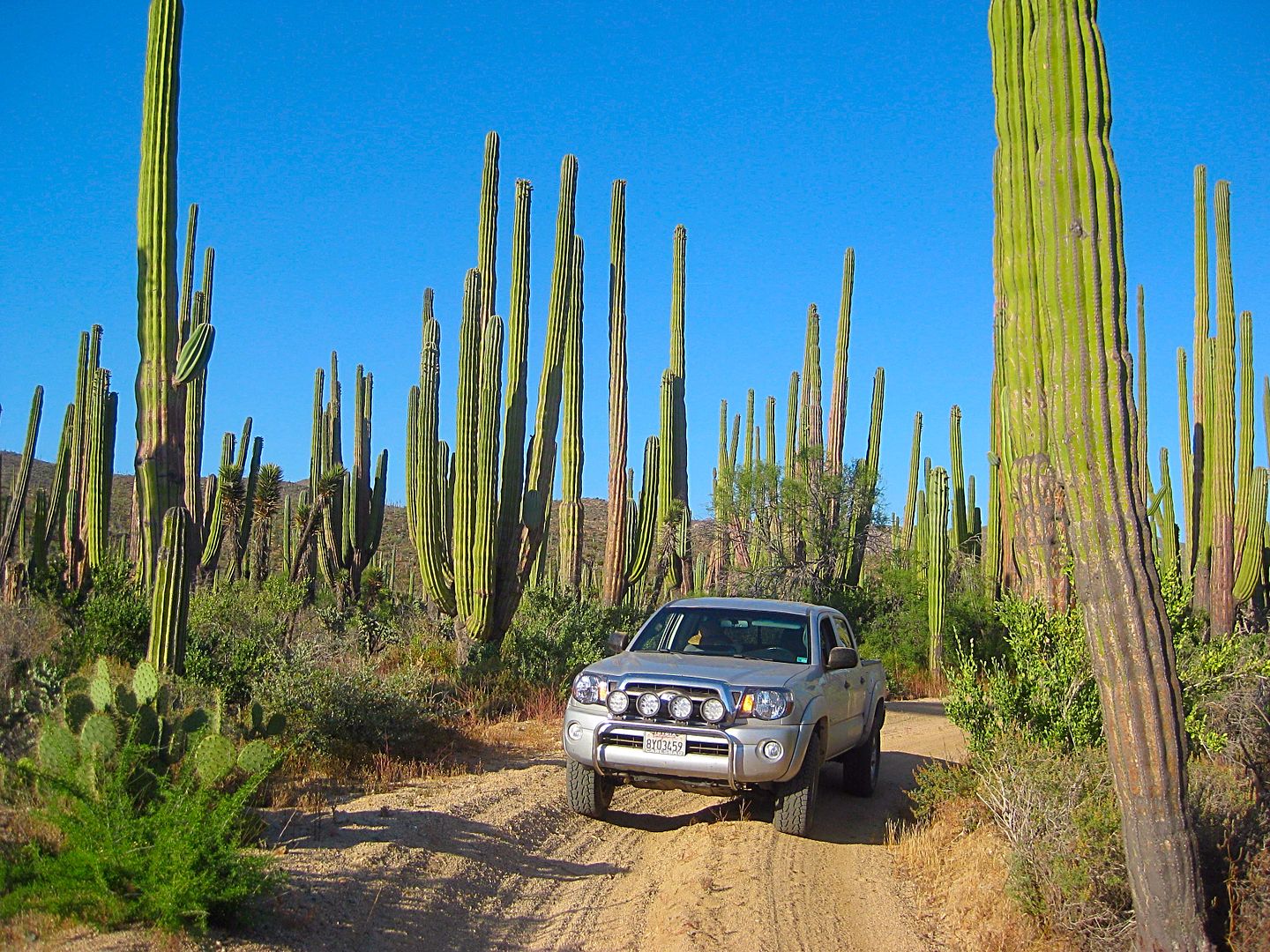Originally posted by Maderita
David K,
Interesting read. Thanks for taking the time to post.
I used to camp on the "island" back in the 70's - 80's when I thought a dozen people at Laguna Percebu was too crowded! Landcruiser FJ40 back in the
day, with all of the typical engine & suspension mods. Always nice to see your photos and to day dream of going back again...
What's your hypothesis on the "4WD LOW + REAR LOCKER" getting worse results? That certainly seems contrary to my experience with mechanical 4WD
systems. There are numerous variables at play, so surprises are not entirely unexpected.
Hope you don't mind a rebuttal regarding this statement: "Locking diferentials lock both tires on an axle together, so one cannot spin faster than the
other, even if it is in the air.
Hard Core off roaders love to have front and rear locking differentials... makes them pretty near unstoppable. The dark side of lockers is that they
make steering quite difficult and must be unlocked in order to make sharp turns on the trail... When you turn a vehicle the 4 tires all must rotate at
different rates. "
In defense of locking diffs, the #1 locker, the original/classic Detroit Locker allows one wheel (the outside wheel) to rotate faster when cornering.
One tire can, and does, spin faster than the other. I have never experienced any difficulty turning in sand or loose dirt; nor have I heard of anyone
unlocking (front hubs or 4WD) to negotiate sharp turns. Admittedly, turning on extremely slippery surfaces, such as snow/ice, requires some "talent."
Detroit Lockers on two of my current vehicles, plus Eaton "E-Locker" (electronic actuator) and ARB "Air Locker" on rear axles. No complaints about any
of those tough units.
It might be a good idea to note here, for the less sand-experienced readers, that 18 psi was sufficient* for the job (described above) of driving down
the beach and pulling in to the campsite. That should not be construed as "ideal" air pressure for soft sand. 10 - 12 psi on a vehicle of similar
weight would be typical, and give better results. The improved flotation would help in preventing a stuck situation, allow for more uphill ability, or
be necessary for hauling a utility/boat trailer.
* Those who know their vehicle's capability and the situation at hand, such as David K, might elect to retain moderate air pressure in order to save
time when airing up again. |


